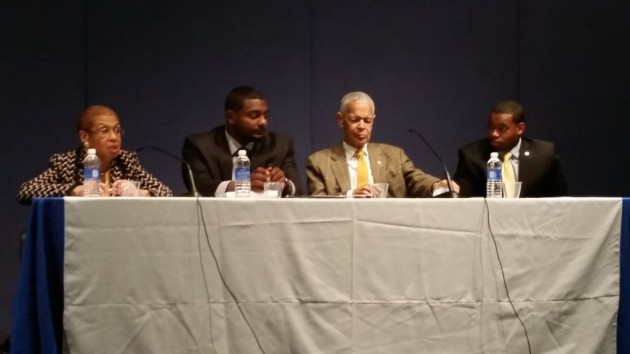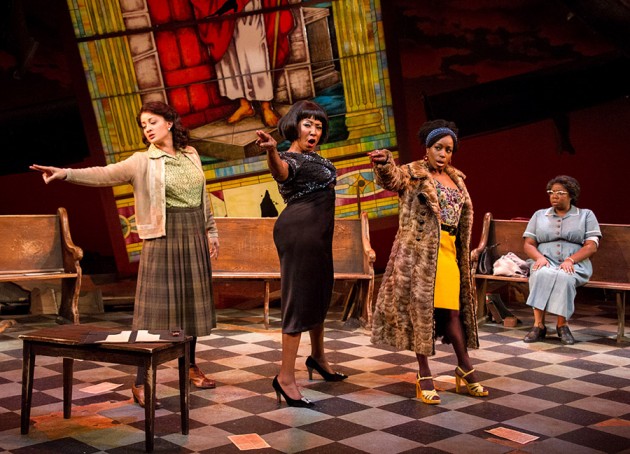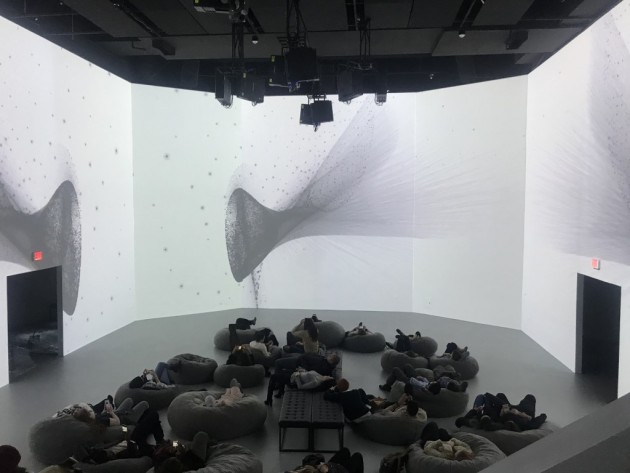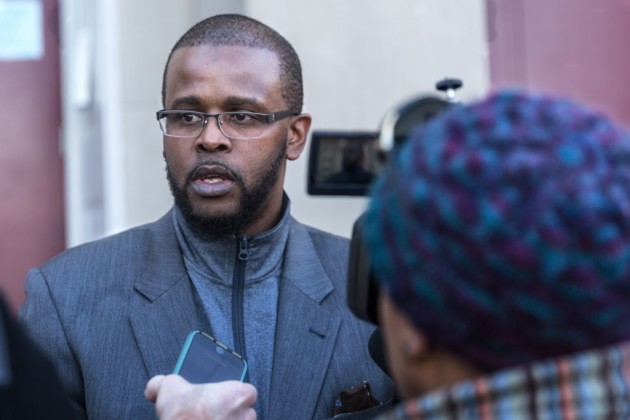
(L to R): Congresswoman Eleanor Holmes Norton, Anthony Driver, Julian Bond, Leighton Watson.
WASHINGTON — On one hand was Julian Bond, a long-time civil rights activist, founding member of the Student Nonviolent Coordinating Committee (SNCC) and former chair of the NAACP.
He was accompanied by Congresswoman Eleanor Holmes Norton, also a long-time civil rights activist and former SNCC member who also was also a member of the famous Mississippi Freedom Summer and worked with slain civil rights icon Medgar Evers.
On the other were members of the new and future generation of leaders — Howard University Student Association President Leighton Watson and Howard University Student Association Vice President Anthony Driver.
As activists from two generations gathered for a discussion on racial profiling in America Wednesday, Feb. 18, at Howard University, the conversation quickly turned to how the generations can learn from and work with each other to address the human rights issues of the day.
Norton said she was pleased to see the recent protests led by young people against the police-related deaths of unarmed black men in Ferguson, Mo., and New York City.
"I have been so elated by seeing young people get out in the streets, I don't know what to do,” she said.
Still, she felt the marches and demonstrations , while important and necessary, lacked focus and a clear direction.
"Back in the days of the Woolworth sit-ins, the demands were clear,” she said. No one needed to articulate demands.
Today, the demands aren't clear. I haven't heard any demands articulated. We hear hands up, don't shoot and Black lives matter, but in fact, much of America may think that what people are really concerned about is black men getting shot in the streets. “That does occur considerably more often than white men, but that's not what brought people of every color out. “It's racial profiling that did it."
In response, Watson said it would help his generation to have guidance from the older generation in how young people today should lead and organize.
"I think that part of thedisconnect is that you have young people who have the enthusiasm and the energy to be out in the streets,” Watson said. “There are ideas floating around, "but without communication with the people that have experience, have ideas, and know how the system works, that can tell us that these are viable ideas or this is what worked for us, it's frustrating.
It's frustrating because (we) have all of these solutions and ideas, but it's hard not knowing if they can even work. So, if the older generation is sitting on ideas that can change the circumstances, then I would think that there needs to be communication, so that the young people can implement these."
Bond said he thought it was important for the new generation to chart its own course without waiting to hear from their elders.
"I think people in my generation are a little reluctant to say to these young people, ‘Why don't you do this? How about you do that’
“I'm not willing to say that, because I think you know what the problems are. You know what the solutions are, and I'm sure we will be glad to help, but don't depend on us to tell you what to do. “Just go out and do it,"
Driver said he believes in a part of the disconnect between the two generations.
"After being in Ferguson and in Chicago, I feel like the disconnect is young people feeling as though the older generation comes in to (assume control of) their movements, or to show face and take credit for their movements," he said.






